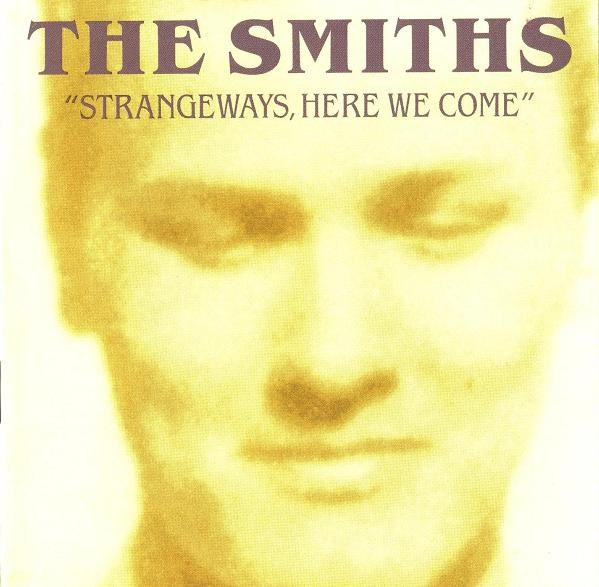 “Strangeways, Here We Come” is the fourth and final studio album by English rock band The Smiths, released in 1987. It serves as a fitting conclusion to the band’s discography, showcasing their musical maturity, lyrical depth, and unique blend of indie rock and jangly pop. With its introspective lyrics, intricate melodies, and Morrissey’s distinctive vocals, the album solidifies The Smiths’ status as one of the most influential and beloved bands of the 1980s.
“Strangeways, Here We Come” is the fourth and final studio album by English rock band The Smiths, released in 1987. It serves as a fitting conclusion to the band’s discography, showcasing their musical maturity, lyrical depth, and unique blend of indie rock and jangly pop. With its introspective lyrics, intricate melodies, and Morrissey’s distinctive vocals, the album solidifies The Smiths’ status as one of the most influential and beloved bands of the 1980s.
The album kicks off with the infectious and guitar-driven “A Rush and a Push and the Land Is Ours,” immediately capturing the listener’s attention. Johnny Marr’s jangly guitar work intertwines with Andy Rourke’s melodic basslines, creating a rich and textured musical backdrop for Morrissey’s poetic and introspective lyrics. The song sets the tone for the album, blending melancholy with a sense of defiance.
One of the highlights of the album is the iconic track “I Started Something I Couldn’t Finish,” which showcases The Smiths’ ability to create instantly catchy and memorable pop melodies. The song’s infectious hooks, driving rhythm section, and Morrissey’s emotive delivery make it a standout track. It is a testament to the band’s ability to combine introspective and sometimes sardonic lyrics with an irresistible pop sensibility.
Throughout the album, The Smiths explore a range of emotions and lyrical themes. Tracks like “Last Night I Dreamt That Somebody Loved Me” and “I Won’t Share You” delve into Morrissey’s trademark melancholy and introspection, examining themes of unrequited love, isolation, and longing. His poignant and poetic lyrics resonate deeply with listeners, capturing the universal experiences of heartbreak and the complexities of human emotions.
Musically, “Strangeways, Here We Come” showcases the band’s tight musicianship and their ability to craft intricate and melodic arrangements. Johnny Marr’s guitar work is brilliant as always, incorporating jangly riffs, delicate arpeggios, and atmospheric textures. The rhythm section, comprised of Andy Rourke on bass and Mike Joyce on drums, provides a solid foundation, driving the songs forward with precision and finesse.
The production on the album is clean and polished, allowing each instrument and Morrissey’s vocals to shine. The album maintains a balance between capturing the raw energy of the band’s live performances and enhancing the subtleties and nuances of their sound. The production values enhance the album’s emotional impact, ensuring that each song resonates with the listener on a deeper level.
“Strangeways, Here We Come” was met with critical acclaim upon its release and has since been regarded as one of The Smiths’ finest works. It encapsulates the band’s distinctive sound and showcases their evolution as songwriters and musicians. The album’s influence on indie rock and alternative music is undeniable, as it set a standard for introspective and emotionally resonant songwriting that would inspire countless bands in the years to come.
In conclusion, “Strangeways, Here We Come” is a remarkable and poignant album that serves as a fitting conclusion to The Smiths’ discography. With its introspective lyrics, intricate melodies, and Morrissey’s distinctive vocals, the album solidifies the band’s legacy as one of the most influential and beloved acts of their time. Whether you’re a fan of indie rock, appreciate heartfelt songwriting, or simply enjoy the unique musical stylings of The Smiths, “Strangeways, Here We Come” is a must-listen that continues to captivate and resonate with audiences to this day.
This post has already been read 302 times!

























